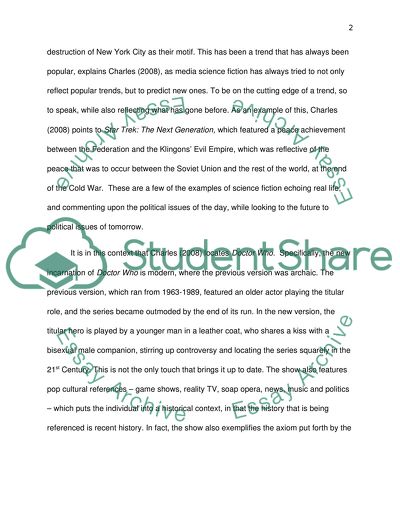Cite this document
(“Discuss the 'politics' of Doctor Who Essay Example | Topics and Well Written Essays - 2000 words”, n.d.)
Discuss the 'politics' of Doctor Who Essay Example | Topics and Well Written Essays - 2000 words. Retrieved from https://studentshare.org/english/1466315-discuss-the-ychpoliticsyie-of-doctor-who
Discuss the 'politics' of Doctor Who Essay Example | Topics and Well Written Essays - 2000 words. Retrieved from https://studentshare.org/english/1466315-discuss-the-ychpoliticsyie-of-doctor-who
(Discuss the 'politics' Of Doctor Who Essay Example | Topics and Well Written Essays - 2000 Words)
Discuss the 'politics' Of Doctor Who Essay Example | Topics and Well Written Essays - 2000 Words. https://studentshare.org/english/1466315-discuss-the-ychpoliticsyie-of-doctor-who.
Discuss the 'politics' Of Doctor Who Essay Example | Topics and Well Written Essays - 2000 Words. https://studentshare.org/english/1466315-discuss-the-ychpoliticsyie-of-doctor-who.
“Discuss the 'politics' Of Doctor Who Essay Example | Topics and Well Written Essays - 2000 Words”, n.d. https://studentshare.org/english/1466315-discuss-the-ychpoliticsyie-of-doctor-who.


